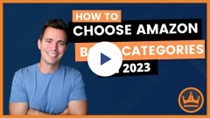An author offers some hard-earned tips.
There’s more to authoring than conquering the blank page. Dozens of unique quirks of industry factor into the experience of a creative. If you’re an aspiring writer with traditional publishing in mind, pay attention. Here’s what to expect from author life:
The industry moves slowly. Very slowly. The publishing machine is overloaded. More manuscripts are submitted than agents and editors can comfortably review. Even established authors can wait weeks or months to hear back on submissions. And even once you receive an offer, the contract process takes time. That’s just on the acquisition side—on the publishing side, editorial cycles can lag, with digital-first projects taking up to a year from contract to publication and print projects taking up to two.
Advice: Unless you’re writing timely nonfiction, settle in for a leisurely ride.
There are more gatekeepers than you think. At the pitching stage, it can seem like the only person separating you from bestseller status is the right acquiring editor. In reality, players at several key stages need to get behind your work. Prereaders often triage submissions for editors. Individual editors who love your manuscript may have to sell your project to a wider team. Accepted manuscripts might have to pass muster with print retailers for wide distribution. Critical publications may or may not opt to publish a review, let alone a favorable one.
Advice: Don’t jockey to get any one individual to fall in love with your book; conceptualize projects with multiple stakeholders in mind.
Not every deal is a good deal. For most early-career authors, being offered a contract—any contract—feels like the goal, like it will validate the quality of our work and our status as authors. What seasoned authors know is that different publishers have different goals, different marketing philosophies, and different access to readers. And each contract has its own small print. A “good” deal is a deal with terms that are balanced and fair to both parties and that serve the author’s career goals.
Advice: Don’t be afraid to negotiate or to decline an offer that’s a bad fit.
It matters how big a fish you are, and what size the pond. Signing on with a major publisher carries cachet, but where you fall in the pecking order matters. Sometimes, it’s better to be a big deal at a small publisher than it is to be an underling at a big house. The same could be said of agencies and agents. The most time, effort, and (in the case of publishers) marketing dollars will go to the authors they plan to invest in the most. It won’t matter if you’re with a big-name publisher or agent if the horse they’re betting on isn’t you.
Advice: Only work with people who will treat you like a priority.
You’ll have to sit on good news. Congratulations! You’ve been offered your next great deal. Now, get ready to wait. Publishers and production houses time their announcements strategically. You will have little control over when, where, and how such announcements happen.
Advice: Develop fulfilling rituals that encompass private and public celebration so that victories don’t feel anticlimactic.
You’ll feel more competitive than you’re proud of. Publishing is not a meritocracy. The more you hustle for book contracts, rights deals, awards, and accolades, the more inequity you’ll see. The quality of the books you write won’t always line up to the size or status of the deals you land, let alone the level of recognition you’ll receive as a creator. A culture of competition among authors can amplify hard feelings on all sides—from jealousy among authors who feel passed over to a sense of abandonment among authors whose friends dwindle the more successful they become.
Advice: Set individual goals and learn to feel content as you meet them, regardless of what others have achieved.
The goal line is always moving. Authors don’t just write books—authors build empires, with multiple business aspects and income streams. Some authors focus on subrights. Others book speaking engagements, develop course franchises, sell merchandise, and seek out other sources of revenue. Ambitious authors raise the bar, inspiring (and sometimes intimidating) other authors. The more time you spend in the industry, the more possibilities you’ll see.
Advice: Be ready for the hustle if you want the bigger things.
Readers are a tricky bunch to please. Even if you’ve written a literary masterpiece that every critic exalts, readers judge based on arbitrary factors. They may gripe about a story element that is transparently stated or editorial decisions that fall within the boundaries of genre; they may even penalize authors for perceived moral transgressions (e.g., profanity, religious persuasion, or sex).
Advice: Don’t focus on the readers who will never like your work. Cultivate the readers who will.
It takes a long time to get paid, and income is sporadic. The industry pays advances for a reason. The editorial cycle relegates authors to long waits before their first royalty checks arrive. Publisher payouts range from monthly to quarterly to biannually, with longer lead times if you’re routing through an agent. And even when money is rolling in, bigger checks come with new releases; sales taper off as books age.
Advice: Build financial scaffolding designed to weather inconsistent income patterns.
The intangibles make the struggle worth it. If all of this sounds terrible, just wait until a fan writes you an email telling you how much your book meant to them, or until a mega-author sees your work and says something kind. Wait until you’re at a book signing and a fan is ecstatic (I mean, ecstatic) to meet you. Wait until you find your writer community and realize that you’ve made a set of lifelong friends. There’s even more gravy if you’re doing well—from bestseller lists to international travel and seeing your work adapted to the screen.
Advice: Don’t be discouraged. The intangibles will come, and they make up for a lot.
______
Kilby Blades is a bestselling author of romance and women’s fiction and a digital marketing veteran.
In a Blistering Opinion, Judge Officially Blocks Texas Book Rating Law by Andrew Albanese | Sep 19, 2023.
Amazon restricts authors from self-publishing more than three books a day after AI concerns
The company announced the new limitations after an influx of suspected AI-generated material was listed for sale but said that ‘very few’ publishers will be affected
 Amazon has dramatically changed their category system. While it seems simplified, there are some pitfalls that authors can run into if they don’t know what to look for.
Amazon has dramatically changed their category system. While it seems simplified, there are some pitfalls that authors can run into if they don’t know what to look for.
Because of this, here’s a full, step-by-step video on selecting categories the right way, with this new system.
From Sandra Beckwith’s Build Book Buzz, why you shouldn’t obsess over one-star reviews, good tips!
Book launch Don’t Do This list
Book news, reviews, and author interviews and great radio talk shows and podcasts
A huge amount of information on topics such as these:
Blogs, links to author interviews, resources for critics and book reviewers. With some periodicals, you may have to register to view the publication online (sometimes for free). They want the demographic information so they know where (and how old) their readers are and thus to whom their (dreamed-of) online advertisers will be able to market their wares.
• A few interesting author profiles and interviews
• About talk radio
• All the top radio talk shows and podcasts
• Venues for author interviews, book readings, glimpses into literary world (aka podcasts and downloads for bookworms and writers)
• Blog roll — good book and lit blogs, newsletters
• Book reviews and literary criticism, Venues for
• Fake, not-quite-kosher, sock puppet and poison book reviews and Amazon’s response to them
• How and where to get reviews and publicity for a book
• —how to send review copies (advance review copies, or ARCs)
• —reviews that influence library purchases
• —trade book reviews–and what are they?
• —paid trade book reviews for self-published books
• —free reviews and publicity for self-published and indie books
• Literary magazines and journals, including lists of them
• Mysteries–recommended reading sites
• Negative book reviews
• Reviews of audiobooks
• Resources for critics and book reviewers
• Social networking for book lovers (Goodreads and other book discovery communities)
• Venues for book reviews and criticism
SEE ALSO
• How and why to use beta readers (under Agents and book proposals–getting feedback on drafts)
• How to get book blurbs and celebrity endorsements)
• Sensitivity reading and sensitivity readers (reading drafts for offensive content, misrepresentation, or stereotypes, used particularly for YA fiction)
• Arguing about cultural appropriation (creating fiction about groups to which you don’t belong)
Planet Word is the only museum in the country dedicated to renewing and inspiring a love of words and language. Located on the corner of 13th and K Streets in downtown D.C., Planet Word opened in 2020 as an interactive and self-guided museum. Using the museum’s state-of-the-art technology, visitors determine their experience through their own words and choices. Planet Word is a bold and imaginative response to the life-long importance of literacy and to the challenge of growing a love of language.
Libby is making it easier to access magazines for free with a supported library card
The app lets you read ‘The New Yorker,’ ‘Wired’ and much more for absolutely zilch.
Kris Holt, August 28, 2023
What’s New(est) in AI
The Authors Guild, John Grisham, Jodi Picoult, David Baldacci, George R.R. Martin, and 13 Other Authors File Class-Action Suit Against OpenAI
For copyright infringement of their works of fiction on behalf of a class of fiction writers whose works have been used to train GPT, the named plaintiffs include: David Baldacci, Mary Bly, Michael Connelly, Sylvia Day, Jonathan Franzen, John Grisham, Elin Hilderbrand, Christina Baker Kline, Maya Shanbhag Lang, Victor LaValle, George R.R. Martin, Jodi Picoult, Douglas Preston, Roxana Robinson, George Saunders, Scott Turow, and Rachel Vail.
Well worth the reading time, the suit claims the books were downloaded from a pirated site and used as ‘training data’ as professionally authored, edited, and published books with, of course, no money for the author and without permission.
“I also wish to clarify that the Authors Guild is not against AI. We recognize that it can be a valuable resource. But it should be a tool human beings wield, not one that is weaponized against us. This suit is really about stopping wholesale theft of our work,” says Maya Shanbhag Lang President, The Authors Guild.
 Here are some of the benefits of membership in The Authors Guild:
Here are some of the benefits of membership in The Authors Guild:
Contract Reviews • Copyright Advice • Dispute Intervention • Author Websites • Domain Registration • Custom Email Addresses • Discounts & Offers • Health & Supplemental Insurance • Press Cards. Locations of regional chapters
Court Strikes Down Mandatory Deposit of Books for Library of Congress
 What’s New in Book Bans
What’s New in Book Bans
Missouri Republicans Use Flamethrowers On Empty Boxes Meant To Represent “Naughty” LGBTQ Books – September 18, 2023
To be very clear, they are not boxes of books. The boxes are empty and are a ‘symbol’ of burning banned or should-be-banned books.
Texas made the most attempts to ban or restrict books in 2022, according to a new report from the American Library Association. Florida, South Carolina, Missouri, and Utah weren’t far behind. Many of the titles were not books people had read. They took the titles from a newspaper, social media, or from other similar groups.
